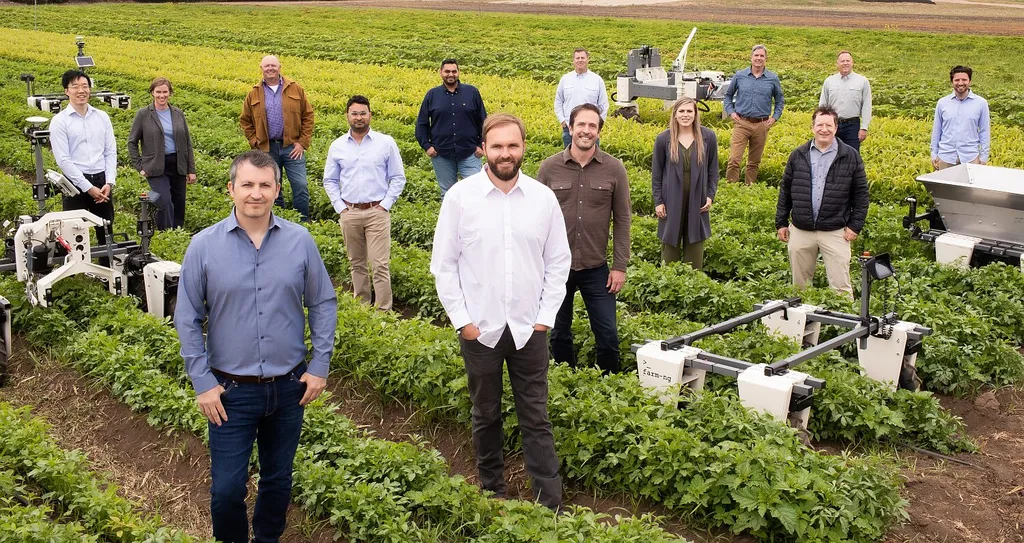Farming has long relied on mechanical innovation—bigger tractors, sharper implements, and more precise irrigation. But the next leap forward won’t come from iron alone. It will come from software, specifically the kind that allows machines to see, adapt, and act without constant human oversight. Bonsai Robotics, a leader in AI-driven agricultural autonomy, is betting on this shift with an expanded executive team designed to accelerate the development of intelligent, field-ready farm machines.
The company’s approach is grounded in a simple but ambitious idea: autonomy in agriculture must move beyond isolated, task-specific solutions toward fully integrated systems that address the real-world challenges growers face—labor shortages, rising costs, and the need for greater efficiency. Unlike many agtech startups focused on niche applications, Bonsai is building a platform that embeds advanced AI and computer vision into both existing equipment and next-generation machines, ensuring consistent performance across crops, terrains, and conditions.
“We’re transforming the industry from iron to software,” said Tyler Niday, co-founder and CEO of Bonsai Robotics, who previously led engineering teams at Blue River Technology and John Deere. “That requires not just cutting-edge technology, but a leadership team that understands how to design, build, and deploy systems that actually work in the field.”
The newly assembled executive team reflects this mission. Ugur Oezdemir, co-founder and CTO, brings expertise in vision-based autonomy from his work at Airbus, Blue River, and John Deere. John Teeple, the company’s COO, previously directed technology strategy at John Deere and launched Deere Labs, giving him firsthand experience in scaling precision agriculture solutions. Gary Bradski, Bonsai’s Chief Science Officer, is a pioneer in computer vision as the founder of OpenCV, a foundational library for real-time machine perception.
On the commercial side, Brendan Dowdle, Chief Business Officer and former CEO of farm-ng, is leading strategy and operations, while Arlen Frew, Chief Revenue Officer, brings two decades of go-to-market experience from enterprise tech leaders like Akamai and Zscaler. Rounding out the team is Matt Pigeon, CFO, whose background in medical device and technology finance ensures disciplined growth as the company scales.
**A Platform Built for Real-World Farming**
Bonsai’s technology isn’t just about automating individual tasks—it’s about creating a full-stack autonomy system that can handle the unpredictability of agriculture. Dust, darkness, uneven terrain, and GNSS signal loss are common challenges in farming, yet most autonomous systems struggle in these conditions. Bonsai’s vision-based models are designed to operate reliably even when traditional sensors fail, using AI to interpret environments in real time.
The platform is also equipment-agnostic, meaning it can be integrated into legacy machines from major manufacturers or deployed in next-generation form factors, such as Bonsai’s own modular, electric **Amiga** system. This flexibility allows growers to adopt autonomy incrementally, without overhauling their entire fleet. Beyond individual machines, Bonsai’s system enables cross-equipment orchestration, where multiple pieces of farm equipment—regardless of brand—operate under a single, unified autonomy layer.
For growers, the promise is clear: machines that can perform missions independently, from weeding and thinning to harvesting, while providing actionable data to improve decision-making and ROI. Early results in high-value specialty crops, such as tree fruits and vegetables, have already demonstrated the platform’s ability to address labor gaps and reduce per-acre costs.
**Why This Matters for Agriculture**
The broader implications of Bonsai’s approach extend beyond individual farms. Agriculture is facing a perfect storm of challenges—rising labor costs, climate variability, and pressure to produce more with fewer resources. Traditional mechanization has hit its limits; the next wave of productivity gains will come from machines that don’t just follow pre-programmed paths but adapt to their surroundings.
By focusing on an AI-first, vision-based system, Bonsai is positioning itself to lead this transition. The company’s emphasis on real-world performance—rather than lab-tested prototypes—suggests a pragmatic path forward for autonomy in farming. If successful, its platform could redefine how machines interact with crops, soil, and farmers themselves, shifting the industry’s center of gravity from hardware to intelligent software.
For now, the company’s expanded leadership team signals serious intent. With deep expertise in robotics, AI, and agricultural machinery, Bonsai is assembling the pieces needed to turn its vision into reality—one where farms run not just on diesel and steel, but on data and decision-making that happens in the field, in real time.

